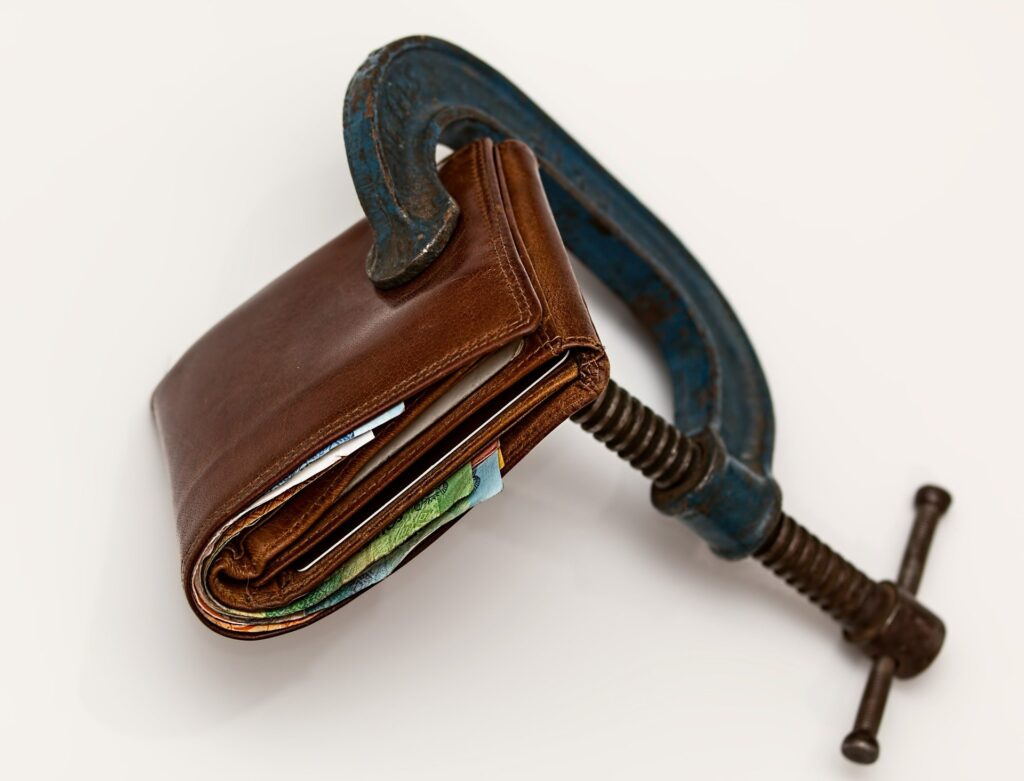Why should we stop taking loans? They help us buy things we can’t afford, right? This is where the problem lies. Loans have become quite normal and a part of everyone’s life in today’s culture. The society in which we live has made it quite challenging to avoid loans and might seem rewarding to those who are taking them. People often become materialistic and start taking loans to buy what their heart desires. This leads to bad financial decisions, which in turn reflects on their bank balance. Due to these poor financial decisions, people overlook important financial aspects like investment, health insurance, emergency fund, etc to buy materialistic things like a brand new car, high-end gadgets, designer clothes, etc.
Let us look at why you need to stop taking loans…
Table of content…
1. Borrowing money from your future self
You think you’re borrowing money from the bank but this isn’t true. The bank lends money only to those individuals who have the ability to pay back the loan. That means, in the future, either you’ll be paying more money to the bank than you have borrowed (interest) or, if in case you fail to pay back the money, you are going to lose your collateral (house, gold, or any other asset). You may feel extremely delighted and joyful when you bring home that brand new car, but remember, it’s going to be a huge burden for your future-self if you have bought it with the help of a loan.

2. Loss of independence
Loans are not just a headache for your future-self, it also affects your independence and ability to make decisions. Loans play an important aspect that pushes you to make certain choices in life. Perhaps you were looking forward to finally starting your dream start-up/business, or go on a much-needed vacation with your family. But again, you are forced to rethink your decisions as you have to pay for the home loan first or you’re going to be thrown out of your house.

3. Loans can damage your relationship
Loans place undue pressure on the finances of your family and cause your spouse and children to feel a sense of financial instability. If both members are exhausted, disagreements can be created regarding the patterns of borrowing, who generates more debt, and who is spending more money. These struggles can worsen and lead to a relationship breakdown.

4. Health problems
When you take a loan, it’s hard not to think about how you’re going to afford payments, or how you’re going to handle excessive charges along with other monthly fees. Debt stress can lead to moderate to serious health issues, including heart-related issues, depression, IBS, insomnia, etc. The further you get into debt, the more likely you are to face health problems.

5. Loans are costly
When you take a loan, it seems like the bank is very generous for giving you the money in advance, but this is an illusion. In general, you pay the price for the loan you’re producing. That price is in the form of interest. The higher the interest rate, the more you will end up paying for your loan. Also, longer the duration of your loan, the more you’ll end up paying in interest.

6. Loan encourages you to buy what you don’t have
There is something about loans that persuades you to keep spending, even though payments are difficult to bear. One thing that is so emotionally appealing about loans is that for the time being, you are able to buy new things from the money that the bank has given you, without having to spend much from your balance.

7. Banks are robbing you
Let’s say you decide to buy a house and take a loan from the bank for an amount of ₹40,00,000 for 30 years, the bank provides you the loan on an interest rate of 9%. Now, the monthly EMI contribution you make is ₹32,185, but the first month’s interest value is ₹30,000. Therefore, the bank receives ₹30,000 directly (which is 93.3% of the true monthly payment) and only the remaining 6.7% is being paid on the equity side (towards your home loan). Therefore, your debt is just reduced from ₹40,00,000 to ₹39,97,815 (₹40,00,000 – ₹2185) and you will have to pay the interest again next month on this colossal amount of Rs. 39,97,815. This vicious cycle will now be repeated for the next 30 years, and eventually will start to take a toll on your mental health. No wonder why banks have so much money!

Instead of taking loans, you need to learn how to save and invest your money, so that it’ll save you when you need it. You need to learn how to make the money work for you so that you can buy things with an income that isn’t dependent on your job.
Stop buying things to impress others with the help of a loan, rather, think long term and invest your money for the greater good.
To learn more about how and where to invest your money, read our blog post: https://gofinanceliterate.com/best-investment-options-to-grow-your-money/
